牛津译林版高中英语必修三高中英语必修三003.docx
- 格式:docx
- 大小:17.80 KB
- 文档页数:4
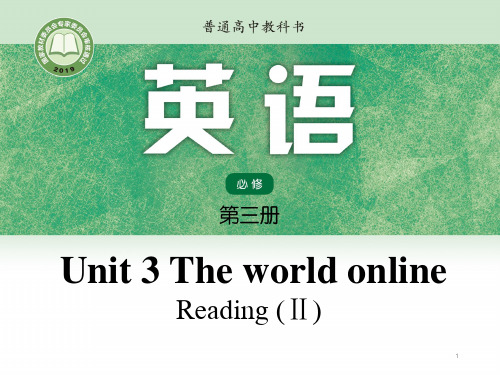
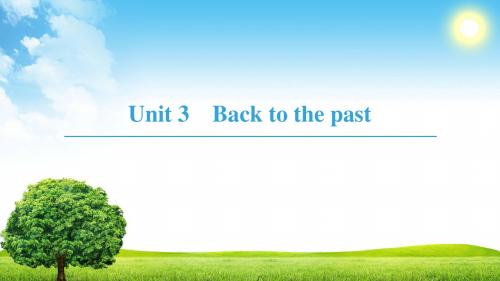

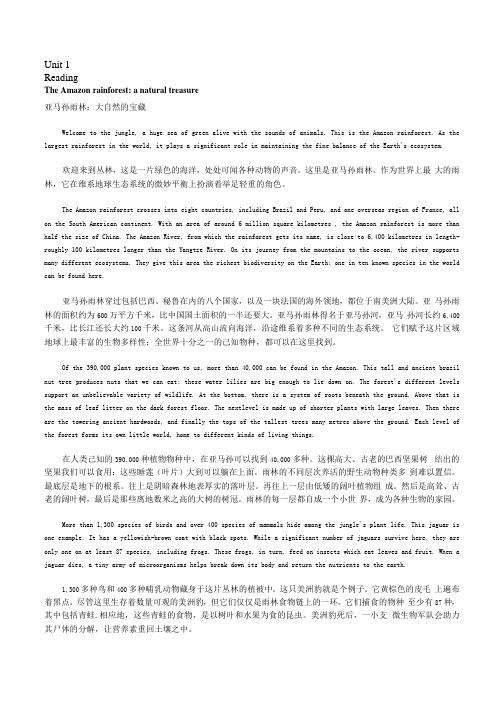
Unit 1ReadingThe Amazon rainforest: a natural treasure亚马孙雨林:大自然的宝藏Welcome to the jungle, a huge sea of green alive with the sounds of animals. This is the Amazon rainforest. As the largest rainforest in the world, it plays a significant role in maintaining the fine balance of the Earth's ecosystem.欢迎来到丛林,这是一片绿色的海洋,处处可闻各种动物的声音。
这里是亚马孙雨林。
作为世界上最大的雨林,它在维系地球生态系统的微妙平衡上扮演着举足轻重的角色。
The Amazon rainforest crosses into eight countries, including Brazil and Peru, and one overseas region of France, all on the South American continent. With an area of around 6 million square kilometres , the Amazon rainforest is more than half the size of China. The Amazon River, from which the rainforest gets its name, is close to 6,400 kilometres in length-roughly 100 kilometres longer than the Yangtze River. On its journey from the mountains to the ocean, the river supports many different ecosystems. They give this area the richest biodiversity on the Earth: one in ten known species in the world can be found here.亚马孙雨林穿过包括巴西、秘鲁在内的八个国家,以及一块法国的海外领地,都位于南美洲大陆。
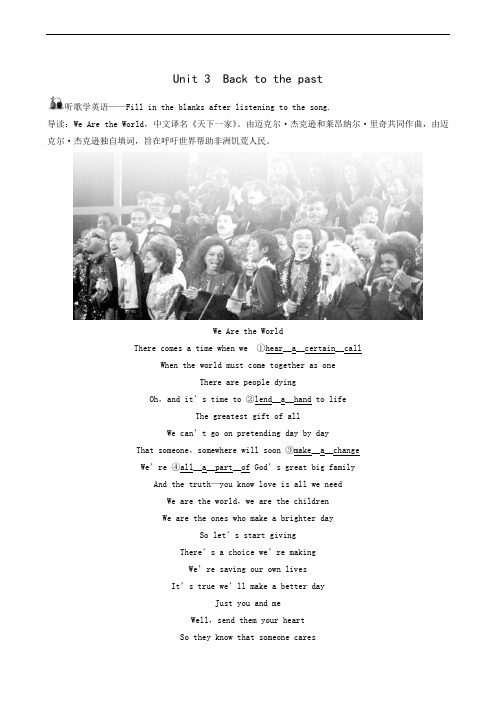
Unit 3 Back to the past听歌学英语——Fill in the blanks after listening to the song.导读:We Are the World,中文译名《天下一家》。
由迈克尔·杰克逊和莱昂纳尔·里奇共同作曲,由迈克尔·杰克逊独自填词,旨在呼吁世界帮助非洲饥荒人民。
We Are the WorldThere comes a time when we ①hear__a__certain__callWhen the world must come together as oneThere are people dyingOh,and it’s time to ②lend__a__hand to lifeThe greatest gift of allWe can’t go on pretending day by dayThat someone,somewhere will soon ③make__a__changeWe’re ④all__a__part__of God’s great big familyAnd the truth—you know love is all we needWe are the world,we are the childrenWe are the ones who make a brighter daySo let’s start givingThere’s a choice we’re makingWe’re saving our own livesIt’s true we’ll make a better dayJust you and meWell,send them your heartSo they know that someone caresAnd their lives will be stronger and freeAs God has shown usBy turning stone to breadAnd so we all must lend a helping hand We are the world,we are the children We are the ones who make a brighter day So let’s start givingThere’s a choice we’re makingWe’re saving our own livesIt’s true we’ll make a better dayJust you and meWhen you’re ⑤down__and__outThere seems no hope ⑥at__allBut if you just believeThere’s no way we can fallWell,well,well,let’s realizeThat one change can only comeWhen we stand together as oneWe are the worldWe are the children天下一家当我们听到了恳切的呼唤全世界应该团结一致有些地方的人们正逐渐死亡是该伸出援手的时候了对生命而言,这是最好的礼物我们不能日复一日地伪装下去了总有人会一瞬间让世界改变我们都是上帝的大家族中的一员事实上,我们需要的就是爱四海皆一家,我们都是神的子民创造美好的未来要靠我们所以,让我们开始奉献自己我们正在做的抉择是在拯救自己的生命我们真的可以创造更美好的明天就靠你和我将你的心传递给他们让他们明白有人关心他们他们的生命才能更坚强、更自由如同上帝启示我们的借着把石头变成面包这件事我们都应该伸出援手才对四海皆一家,我们都是神的子民创造美好的未来要靠我们所以,让我们开始奉献自己我们正在做的抉择是在拯救自己的生命我们真的可以创造更美好的明天就靠你和我当你意志消沉、不被接纳时一切似乎全无希望但只要你相信我们不可能倒下让我们好好想清楚只能做一个改变当我们像一家人站在一起四海皆一家我们都是神的子民导航知素养——A guide to the unit主题语境人与社会历史、社会与文化物质与非物质文化遗产语言知识(1)语音:掌握重音、语调、节奏等的变化,表达意义、意图和态度等。

2020译林版高中英语必修三课文原文Unit 1 The Amazon rainforest: a natural treasureWelcome to the jungle,a huge sea of green alive with the sounds of animals.This is the Amazon rainforest. As the largest rainforest in the world, it plays a significant role in maintaining the fine balance of the Earth's ecosystem.The Amazon rainforest crosses into eight countries, including Brazil and Peru, and one overseas region of France, all on the South American continent. With an area of around 6 million square kilometers, the Amazon rainforest is more than half the size of China.The Amazon River, from which the rainforest gets its name, is close to 6,400 kilometers in length — roughly 100 kilometers longer than the Yangtze River. On its journey from the mountains to the ocean, the river supports many different ecosystems. They give this area the richest biodiversity on the Earth: one in ten known species in the world can be found here.Of the 390,000 plant species known to us, more than 40,000 can be found in the Amazon. This tall and ancient Brazil nut tree produces nuts that we can eat; these water lilies are big enough to lie down on. The forest's different levels support an unbelievable variety of wildlife. At the bottom, there is a system of roots beneath the ground. Above that is the mass of leaf litter on the dark forest floor. The next level is made up of shorter plants with large leaves. Then there are the towering ancient hardwoods, and finally the tops of the tallest trees many meters above the ground. Each level of the forest forms its own little world, home to different kinds of living things.More than 1,300 species of birds and over 400 species of mammals hide among the jungle's plant life. This jaguar is one example.It has a yellowishbrown coat with black spots. While a significant number of jaguars survive here, they are only one element of this forest's food chain. They feed on at least 87 species, including frogs. These frogs, in turn, feed on insects which eat leaves and fruit. When a jaguar dies, a tiny army of microorganisms helps break down its body and return the nutrients to the earth.The Amazon rainforest breathes life into the planet by fixing carbon and producing over 20 per cent of all the Earth's oxygen. Thus, it is often known as the “lungs of the planet”. Moreover, the Amazon rainforest is a treasure house of species that can be used for food or medicine. Yet there is one major danger to these irreplaceable plants and animals: us. Over the past 50 years, about 17 per cent of the rainforest has disappeared due to human activities such as agriculture and cattle farming. As the impact of human activities continues to grow and the list of species in danger of extinction becomes longer, we are left with a question: can we afford to damage the “lungs of theplanet”?Unit 2 Natural disastersPupils' lives spared during Falmont earthquakeBy Raymond Tran18 MarchFALMONT — On 17 March, 476 students and 36 teachers at Falmont Primary School escaped an earthquake that hit the county at 2:27 p.m. Only 5 students suffered slight injuries, despite the current figures of 7 killed and over 200 injured in the disaster area at large.Alice Brown, head teacher at Falmont Primary School, was teaching when the floor began to shake. Her students’ reaction was quick and correct — they moved under their desks, head first, and held on to the legs of the desks. At the same time,Miss Brown quickly opened the classroom door, in case it became damaged during the shaking and could not open. There were loud crashes of glass breaking and things falling to the ground, but the students remained still and waited calmly and quietly.The moment the shaking stopped, Miss Brown sensed it was the best time for the class to make their escape. She signalled to her students to exit the classroom in an orderly line covering their heads with their hands. Within one minute and twenty seconds, the whole class went down the stairs and rushed to the playground. Soon students from other classes arrived too. After a roll call confirmed that all were safe and sound,they relaxed, laughing, crying and hugging each other.Girl saves 100 from tsunamiBy Jessie Cable21 DecemberNEWDALE —On 20 December, a series of huge waves caused by an undersea earthquake raced across the ocean near Goldshore and left thousands dead. Goldshore Beach was the only local beach to survive the disaster without any loss of life. A 10yearold girl, Sabrina Andron, helped around 100 people escape danger with her knowledge of tsunamis.The day began like any other on Goldshore Beach. People were walking, running or simply sitting on the sandy beach, enjoying the warm sea air and the soft wind that brushed their hair.Sabrina was one of the happy tourists until she noticed something odd. “The water was like the bubbles on the top of a beer,” she later explained. “It wasn't calm and it wasn't going in and then out. It was just coming in and in and in.”Sabrina had just learnt about tsunamis in a Geography lesson. It immediately occurred to her that these were signs of an approaching tsunami.Sabrina was frightened,but she soon kept her head. She warned her parents of the danger, though at first they just thought she was joking. However, Sabrina was certain that a terrible disaster was on its way and kept asking her parents to talk to a safety officer. To her great relief,the officer immediately realized the coming danger. The beach was rapidly cleared of people, just before the huge waves crashed into the coast.Unit 3 The Internet: a world without frontiersThe Internet has the power to connect people across the world to a single shared community. Billions of people in different parts of the world have joined it already, and obviously many more will follow. Even in the countryside, the Internet enables people to reach beyond their villages and get in touch with the outside world. We can achieve almost anything online — with access to the Internet come some truly lifechanging advantages.One of the greatest advantages of the Internet lies in the quick and easy access to a huge amount of information. To a certain extent, the world's knowledge is all at our fingertips. With the click of a mouse or the touch of a button, it is possible to find out almost anything we care to know, from recipes to travel packages, from military affairs to learning resources. In the time it takes to find one book in the library, we can use a search engine to bring up millions of results. No wonder the Internet has now become the first place that the majority of people turn to for information.The Internet has also made our lives unbelievably convenient, with all sorts of goods and services provided by electronic commerce, more commonly known as ecommerce. You can have food delivered to you using food delivery apps and sites. Gone are the days of searching shop after shop for the perfect pair of boots — you can compare styles and prices quickly and easily in the comfort of your living room. Why wait hopelessly for a taxi in the cold rain? It is now simple and fast to order one with a taxi app. Sit back and relax indoors for a few warm minutes until the driver arrives. When you wish to go on holiday, you can make all your travel arrangements just in front of the computer. Forgot to carry cash? There is no need to worry — you can pay for almost everything on your smartphone.Above all else,the Internet helps us establish and maintain social ties. With all sorts of communication software, physical distance no longer gets in the way. No matter where we are, we are able to keep in contact with loved ones, find longlost friends and discover whole new communities who share our hobbies. An instant message, a group chat, a video call, a comment on an update — there are endless ways to share our views or let someone know we care about them.However, while the Internet brings many valuable advantages, being connected has its problems. As with any great invention, we must be aware of these problems and be careful to use the Internet properly and responsibly. Only in this way can the Internet be a place of discovery, wonder and inspiration for everyone. It is truly a world without frontiers.Unit 4 Chinese scientist wins 2015 Nobel PrizeBy Dina Conner11 December 2015Tu Youyou has become the first female scientist of the People's Republic of China to receive a Nobel Prize, awarded for her contribution to the fight against malaria, one of the deadliest diseases in human history. Thanks to her discovery of qinghaosu, malaria patients all over the world now have had a greatly increased chance of survival.Born in 1930 in Ningbo, Zhejiang Province, Tu studied medicine at university in Beijing between 1951 and 1955. After graduation, she worked at the Academy of Traditional Chinese Medicine. She completed further training courses in traditional Chinese medicine, acquiring a broad knowledge of both traditional Chinese medicine and Western medicine.Tu's education was soon to prove very useful. In the 1960s, many people were dying of malaria, and in 1969 Tu became head of a team that intended to find a cure for the disease. She collected over 2,000 traditional Chinese medical recipes for malaria treatment and made hundreds of extracts from different herbs. When they failed to produce any promising results, Tu referred to the ancient books of traditional Chinese medicine again. Inspired by an over 1,600yearold text about preparing qinghao extract with cold water, Tu redesigned the experiments and tried extracting the herb at a low temperature in order not to damage its effective part. On 4 October 1971, after 190 failures, she succeeded in making qinghao extract that could treat malaria in mice.However, it was hard to produce enough qinghao extract for large trials because research resources were limited .Tu and her team managed to find solutions to the problem. When there wasno research equipment, they had to extract herbs using household water containers. They worked day and night and their health began to suffer because of the poor conditions, but they never gave up.Even with large amounts of qinghao extract produced, however, they still faced another problem. The trials on patients were likely to be postponed because they did not have sufficient safety data. To speed up the process and ensure its safety, Tu and her team volunteered to test qinghao extract on themselves first.The efforts of Tu and her team finally paid off. In November 1972, through trial and error, they successfully discovered qinghaosu— the most effective part of the qinghao extract. As a key part of many malaria medicines, qinghaosu has since benefited about 200 million malaria patients. More than 40 years after its discovery, Tu was eventually awarded the Nobel Prize for her work. In her Nobel Lecture, she encouraged scientists to further explore the treasure house of traditional Chinese medicine and raise it to a higher level. Perhaps the next generation of scientists, drawing on the wisdom of traditional Chinese medicine, will indeed discover more medicines beneficial to global health care.。


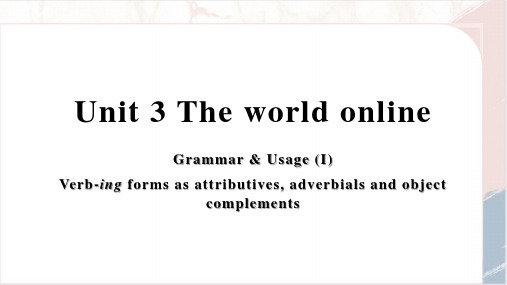


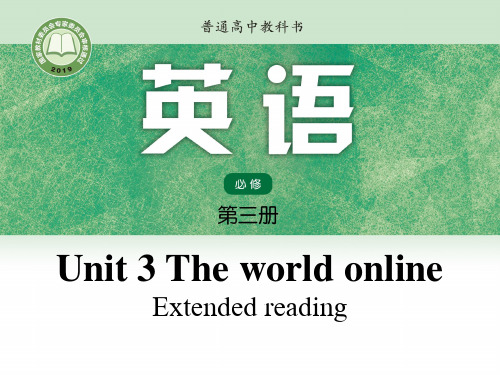
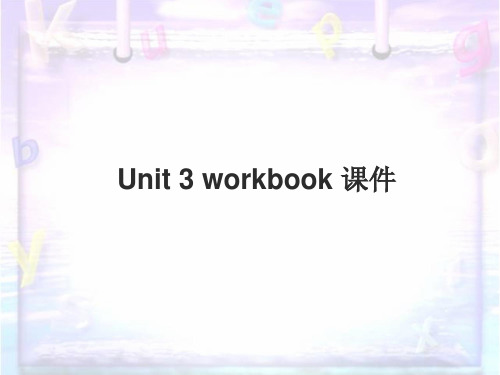

高中英语学习材料madeofjingetiejiM3 Unit3一.听力(满分20 分)。
第一节(共5小题;每小题1分,满分5分)1.What does the man think the building will be?A. A market.B. A hotel.C. A department store.2.What can we learn from this conversation?A.The wind has stopped but it’s still raining.B.The raid stopped.C.it’s still raining and the wind is blowing.3.Where did Suzanne spend her childhood?A. America. B.England. C.Spain.4.Why do the peasants like the officer?A.They are honest.B.They think he is honest and stands for them.C.They are friendly enough.5.Why do most people go to the coast in summer?A.The coast is one of the best places for swimming during hot days.B.All of people want to get sun as much as possible.C.Both A and B.第二节(共15小题;每小题1分,满分15分)听第6段材料,回答第6至7题。
6.What is Jack going to do?A. To attend a lecture. B.To repair his bicycle. C.To go to school. 7.Why does Jack have to wait for a bus`?A.Because he will be late for the 10:00’s class.B.Because he always goes by bus.C. Because there was something wrong with his bicycle.听第7段材料,回答第8至10题。
高中英语学习材料
***鼎尚图文理制作***
淮安市范集中学高一年级英语学科作业班级________学号_________姓名__________得分_______003__
1.He survived the plane crash and landed on a d_______ island.
2.The little boy held his mother’s hand f______ when crossing the street.
3.Soon a team of 200 v_____ arrived in the area to help the wounded,
homeless in the earthquake without any pay.
4.The school is within walking d_____ of my house.
5.She spoke quietly for f____ of waking the baby up.
6.The recent economic situation a_____ to our worries.
7.She g_______ at her watch and left in a hurry.
8.At the news, people couldn’t h______ jumping and laughing.
9.In my opinion, what he told us just now about the matter doesn’t make any_______.
二、完形填空
BEIJING –(1) ____ the smoggiest day here (2) ____ the past week, International Olympic Committee president Jacques Rogge (3) ____ Chinese authorities Thursday, (4) ____ they had “done everything feasible and humanly possible” (5) ____ the (6) ____ for the Olympics.
“The fog you see (7) ____ on the basis of humidity and heat,” Rogge said (8) ____ a news conference. “It does not mean to say (9) ____ this fog is the same as (10) ____. It can be pollution, but the fog doesn’t mean (11) ____ that it is pollution.
“Of course, we prefer clean skies, but the most important thing is the (12) ____ of the athletes being protected.”
Rogge said that the I.O.C. could (13) ____ events because of poor air quality (14) ____ 72 hours before the events, (15) ____ ones like road cycling, triathlon and the marathon in which (16) ____ would be most affected by noxious air because of their prolonged exposure to it.
For now, (17) ____, Rogge said: “It is safe for the athletes.”
On the eve of the first Olympics (18) ____ in China, the air was soupy and gray, with the air quality rating reaching 95, well (19) ____ air standards in the United States. Anything below 101 qualifies as a Blue Sky day here, (20) ____ the standards set to monitor air quality for the Olympics.
1. A. In B. On C. At D. With
2. A. in B. on C. at D. with
3. A. criticized B. praised C. criticize D. praise
4. A. said B. talk C. saying D. talking
5. A. clean B. cleaning C. cleaned D. to clean
6. A. air B. road C. city D. food
7. A. base B. based C. is based D. basis
8. A. in B. at C. on D. /
9. A. that B. what C. all D. one
10. A. rain B. pollution C. smoke D. wind
11. A. only B. probably C. necessarily D. possibly
12. A. marks B. scores C. height D. health
13. A. cancel B. call off C. postpone D. stop
14. A. up to B. as much as C. up D. down
15. A. frankly B. usually C. definitely D. particularly
16. A. officers B. audiences C. foreigners D. athletes
17. A. if B. and C. though D. even though
18. A. hold B. held C. holding D. holds
19. A. above B. almost C. below D. next to
20. A. follow B. same as C. stay D. according to
1. deserted
2.firmly
3.volunteers
4.distance
5.fear
6. added
7. glanced
8. help
9. sense
1. B 11. C
2. A 12. D
3. B 13. C
4. C 14. A
5. D 15. D
6. A 16. D
7. C 17. C
8. B 18. B
9. A 19. A
10. B 20. D
三.根据中文填空:
1. He is standing in front of the window and _______ (盯着看) at the rain pouring down.
1.The number of the students in the area has
been__________ (减少).
3. We passed through several __________ (被离弃的)
villages where local people had already left.
4. The article is so difficult that I can’t make ______ (理解) of it.
5. I was frozen with fear at the _______ (看见) of the blood.
6. We have a fair _______ (可能性) of winning the game.
7. In order to _______ (避免) making mistakes, he checked his essay again and again.
8. He put forward two suggestions. The ________ (后者) sounds much better.
9. The book is at the top of the shelf, out of my _______ (触到).
10. Finally, his dream of becoming a scientist has come _______ (真的).。